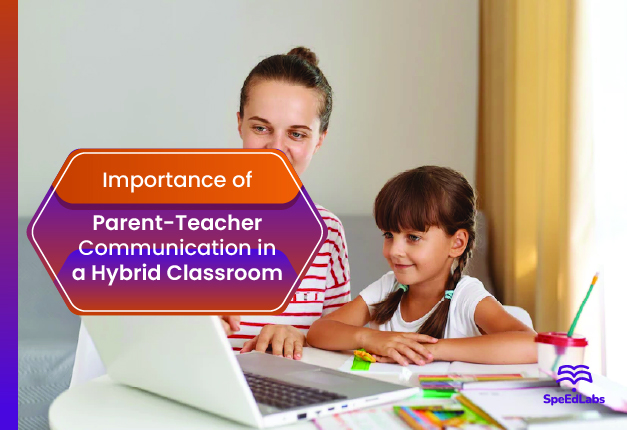Countries need to be aware of how to support students as they switch from online to classroom learning after the global school lockdown resulting from the COVID-19 pandemic. After learning at home for more than a year, students will need to acclimate to the school setting. Hybrid learning is one method for controlling this transition. Hybrid learning, however, what exactly is it?
To ease the transition to school reopening, the government and educators may want to consider hybrid learning.
Students have benefitted from hybrid learning, which combines online at-home learning with offline classroom or home visits.
While class meetings were held in the classroom once a week to discuss homework assignments, remote learning can be carried out using Zoom or Google Meeting to deliver course materials to students.
Family involvement has taken centre stage in today’s education during the pandemic and has never been more crucial for maintaining learning across all classroom settings. To meet the needs of the student, parents take on a variety of roles.
HOW TO INCREASE PARENT-TEACHER INTERACTION IN HYBRID MODE
In a virtual environment, parents are unable to visit the school to do so and speak with the teacher. It’s crucial to offer in-person opportunities for parents to speak with teachers, and it’s equally crucial to have follow-up conversations that reiterate what was said earlier.
Parents should also remain engaged and informed.
By discussing hybrid learning openly with your family’s younger members, you can accomplish two goals at once: your kids will see that you are genuinely interested in what is going on in their lives, and you will gain knowledge from them and possibly even teach them.
The generational divide can be closed off right now. You can help your kids become better students by enrolling in school yourself, allowing them to catch you up, and practising some humility and openness to learning. Learning, a concept is sometimes best accomplished by teaching it. You will all emerge from the experience as better, more knowledgeable netizens with a stronger bond of love, communication, and trust if you ask your kids thoughtful and pertinent questions about hybrid learning.
The most important thing is to never approach this new chapter in your lives with preconceived notions like “all screen time is a distraction” or “the Internet is inherently less reliable than books as a source of reliable information.” Being educated about hybrid learning is no different from other types of learning in that it necessitates having an open mind.
Discussion of online safety.
A child’s ability to develop early independence and self-discipline are just a couple of the many advantages of the quick switch from traditional book-based learning to online education, but it also comes with several drawbacks. Parents and teachers must work together to make sure students are practising online safety due to issues like cyberbullying, scams, phishing, and privacy leaks.
By openly and consistently conveying the same safety message to kids, parents and teachers can work together efficiently. Teaching online safety in the classroom and then promoting it at home after school hours will reduce the effort required and increase the impact.
Virtual gatherings to encourage parent-teacher cooperation.
Parent-teacher conferences seem to be the lifeblood of the teacher-parent relationship, but they are not an option in a time when lockdown and self-isolation are the norms.
However, this does not imply that the idea should be abandoned.
Consider holding online gatherings and PTA meetings to take a page from the virtual classrooms’ book. Making PTA meetings available online gives parents a platform to feel supported. Additionally, it provides parents with a forum where they can discuss strategies for keeping their kids motivated, inspired, and eager to learn despite changes to their environment.
The advantages of effective parent-teacher cooperation.
When it comes to a successful collaboration between a parent and a teacher, numerous advantages could be realised:
- Additional assistance and a shared comprehension of the difficulties posed by the remote circumstances (on both sides!).
- The parent can help the teacher by passively reinforcing lessons outside of the remote classroom because they have a better understanding of what their child is learning.
- There is room for open communication between the parent and teacher if a child is having difficulties, which can comfortably resolve problems.
- When a child’s parents and teacher have a good relationship, the child’s ability to learn improves.
According to research, there is a link between a child’s healthy learning habits, better social skills, adaptability and strong teacher and parent collaboration.
Also published on Medium.
